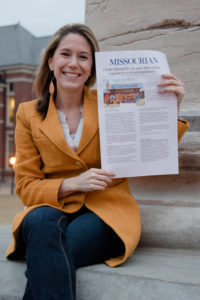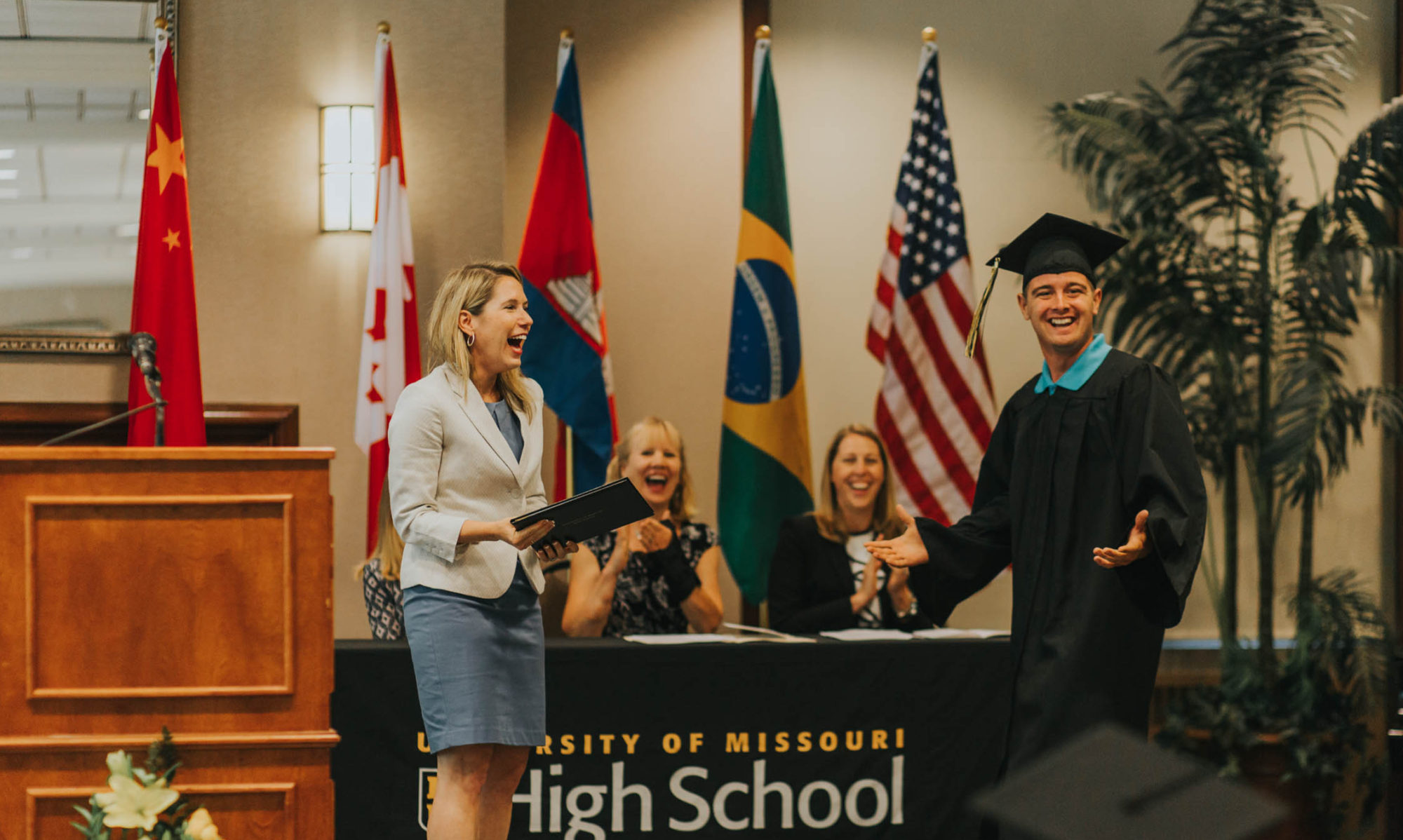As an assignment for Mizzou K-12’s newest program, Middle School Global Leaders, sixth-grade students are asked to write open letters on topics that matter to their community. Kathryn Fishman-Weaver, a faculty member at the MU College of Education and director of academic affairs for Mizzou K-12, wrote this letter as an example for her students.

Dear Mid-Missouri Students—
While the world is not always as kind, accepting, and inclusive as it should be, young people usually are. In fact, I think your role as student leaders in our community is our most promising and positive force for change. Some of you reading this may say, “Hey, I am not a leader!” to which I smile and respectfully disagree. Perhaps we all need to think differently about leadership. A leader is someone who influences, motivates, and affects change. A leader isn’t always the loudest or most popular person in the room; sometimes, a leader is the quiet friend everyone counts on, or the person who is willing to do the right thing even when it is unpopular. Here are four ways I’ve noticed you and your classmates using your leadership to make the world a better place.
You volunteer. You help feed our community. You pack thousands of pounds of food at the Central Missouri Food Bank; you cook dinners for the Ronald McDonald House. You visit the elderly at nursing homes. You write holiday cards for children in the hospital and for soldiers serving overseas.
You organize. You plan food drives and clothing drives for children and families in our community. You established the Columbia Youth Advisory Council to advise our city on issues affecting young people. You start new clubs and organizations to change policies and to advocate for issues that matter to you. You serve as Kindness Ambassadors at your schools.
You include. You notice when someone is sitting alone at lunch, and you ask them to join your group. Your friends have different identities, families, and backgrounds and you know they are cool and interesting just the way they are. You honor our Special Olympics athletes with rousing standing ovations.
You learn. Sometimes you make mistakes. It’s okay—you are human. Most importantly, you are willing to learning from those mistakes. I’ve heard you apologize. I’ve heard you admit that you shouldn’t have said something or that if you had it do again, you would make different choices. I’ve heard you ask for help. These humbling moments matter; learning is how we improve.
While the world might not yet be as compassionate as it should be, your leadership is helping us get there. Thank you for volunteering, organizing, including, and learning. Keep up the great work!
Encouragingly yours, Dr. Fishman-Weaver
A Note for Adults—Although students are welcome to read this as well
Are there counterexamples? Sure. However, I’ve spent enough time in schools to know that these counterexamples are few, isolated, and almost always the product of insecurity. Let’s (1) not let outliers determine our overall impression of young people, and (2) coach students who do need extra interpersonal support by modeling compassion, affirmation, and grace. Let’s also teach that quiet leadership matters. For inspiration on what this looks like, visit local classrooms, particularly the classrooms of young students. I’ve found that children tend to understand equity, inclusion, and friendship with more sophistication and far less agenda than their adult counterparts. This is the type of leadership that can inspire us all.
